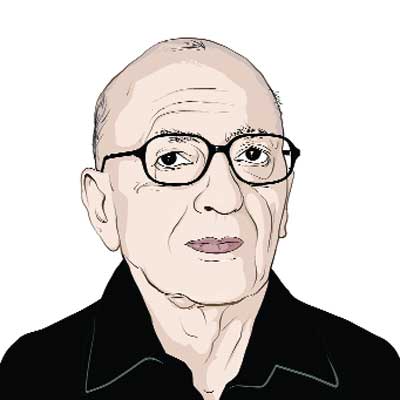Opinion Fishing in troubled waters
As the 1962 war loomed,Pakistan exploited India-China divisions to the fullest
More than a year before the 1962 war began,Pakistan,which had until then watched the growing India-China crisis with ill-concealed glee,decided to exploit it to its own ends. At the Commonwealth Prime Ministers Conference in London in March 1961,President Ayub declared that Kashmir was a burden on the armies of both Pakistan and India,and if that were settled,relations between the two countries would be very friendly. Nehru made no comment except to say that he was always anxious to settle problems.
Thereafter,Ayubs stance became more strident,indeed aggressive. At a private meeting with them,he told Pakistani editors that Pakistan would take advantage of Indias difficulties with China and that,in any dispute between India and China,Pakistan would be on Chinas side. Those in the highest echelons of this countrys power structure who saw the relevant intelligence reports were somewhat intrigued. For wasnt Pakistan a member of SEATO directed specifically against China?
Unfortunately,what was unknown then,and is now an established fact,is that an amicable understanding had been reached between China and Pakistan as early as 1955 on the sidelines of the Bandung Conference. Zhou Enlai had told Mohammed Ali Bogra,then Pakistans prime minister,that China had no problem with Pakistans membership of SEATO and knew why it had joined the US-led military pact.
In 1961,as Goa was becoming a live issue,and eventually had come to a head,Pakistan advertised its friendly feelings for Portugal. During his tour abroad,especially in the United States,Ayub went out of his way to use bitter language against India even on formal occasions. When the Indian action in Goa began,Pakistan staged a huge military exercise close to the Indian border.
And yet the irony is that two years earlier,during a brief stopover in Delhi,Ayub had offered India joint defence of the subcontinent,combining it with the proposal to station in Kashmir both Indian and Pakistani troops,but didnt or couldnt answer the question,defence against whom?
How sincere Ayubs offer was is best shown by Pakistans secret communication to Beijing in November 1959 that its boundary with China be delimited. The author of this initiative was Z. A. Bhutto who had led the Pakistani delegation to the UN,where he had learnt that China and Burma,now Myanmar,had all but clinched their boundary agreement,and that the Chinese were willing to settle the border with whichever neighbour was willing to negotiate with it. No one heard anything about this move for nearly two years because the Chinese were clearly wary of responding to the Pakistani request.
Only in 1961 was it made public that China and Pakistan had agreed to start border negotiations. India protested vigorously. The territory that adjoined China was part and parcel of the Indian state of Jammu and Kashmir that Pakistan had occupied illegally. Pakistan had therefore no right to discuss this boundary. China,however,had evidently done its homework and persuaded Pakistan to go along with it. In May 1962 Beijing and Rawalpindi announced simultaneously: To ensure peace and tranquility on the border and develop good-neighbourly relations,the two countries had decided to delimit their boundary. But they took care to describe the boundary as being between Singkiang and the contiguous areas,the defence of which was under the control of Pakistan. And,for good measure,the China-Pakistan announcement added: The agreement reached would be provisional,to be renegotiated if necessary,after India and Pakistan settled the Kashmir dispute.
Despite all this sophistry,Indias anger was red-hot,if only because of its firm and consistent stand that the entire former princely state of Jammu & Kashmir belongs to this country. In a protest note to China,India declared: There is no common border between Pakistan and China,and charged that the proposal to delimit a non-existent border was a step in furtherance of the aggressive aims that China has been pursuing towards India in recent years. The note went on to say that India would repudiate any Sino-Pakistani boundary agreement. Chinas equally irate reply inquired,whether after creating the Sino-Indian boundary dispute,India wished to see a similar dispute arise between India and Pakistan?
As if this was not enough,things were made worse by the inextricable interlink between Pakistans bitter hostility to India,especially over Kashmir,and the Western powers,especially Americas and Britains policy on South Asia. John F. Kennedy,who became president in January 1961,was friendly to this country and saw to it that economic aid to India was raised substantially. At the same time,the Kennedy administration considered Ayub a very useful ally. Indias decision to buy the MiG aircraft from the Soviet Union in August 1961 angered the US,the Capitol Hill more than the White House,and Indian criticism of the subsequent cut in the US aid raised the ante.
Consequently,at a time when Nehru was assuring his countrymen that while he was keen to settle the Kashmir issue,he would never give Kashmir away,Kennedy stepped up the pressure for a solution of the Kashmir dispute. At first Ambassador John Kenneth Galbraith suggested that rather than seek a formalisation of the boundary between the state and the part of it under Pakistans occupation,the two countries should consider converting the ceasefire line into a soft boundary by granting Pakistan such rights in Kashmir as easier entry and a share in trade and commerce. Nehru brushed this aside on the ground that such concessions could only follow Pakistans acceptance of Kashmir as a part of India.
Then,in identical letters to Nehru and Ayub in January 1962,Kennedy suggested mediation and for this purpose offered the services of Eugene Black,the World Bank president who had helped in the conclusion of the Indus Water Treaty. Nehru rejected informal mediation on principle. After the start of the war,Kennedy rushed some military equipment to India. Ayub hit the ceiling and spurned the US presidents assurance that the weapons given to India were usable only against China. What followed,as we will see,was even more troublesome,and had predictable consequences.
The writer is a Delhi-based political commentator



